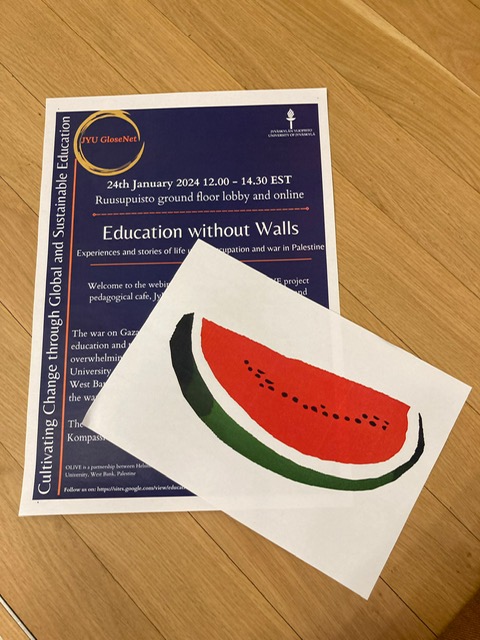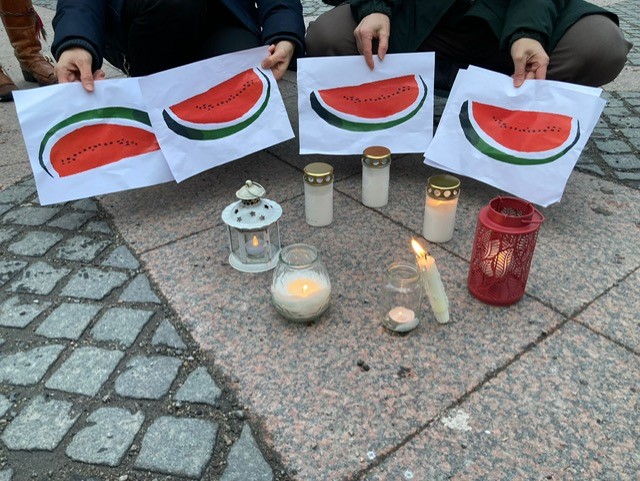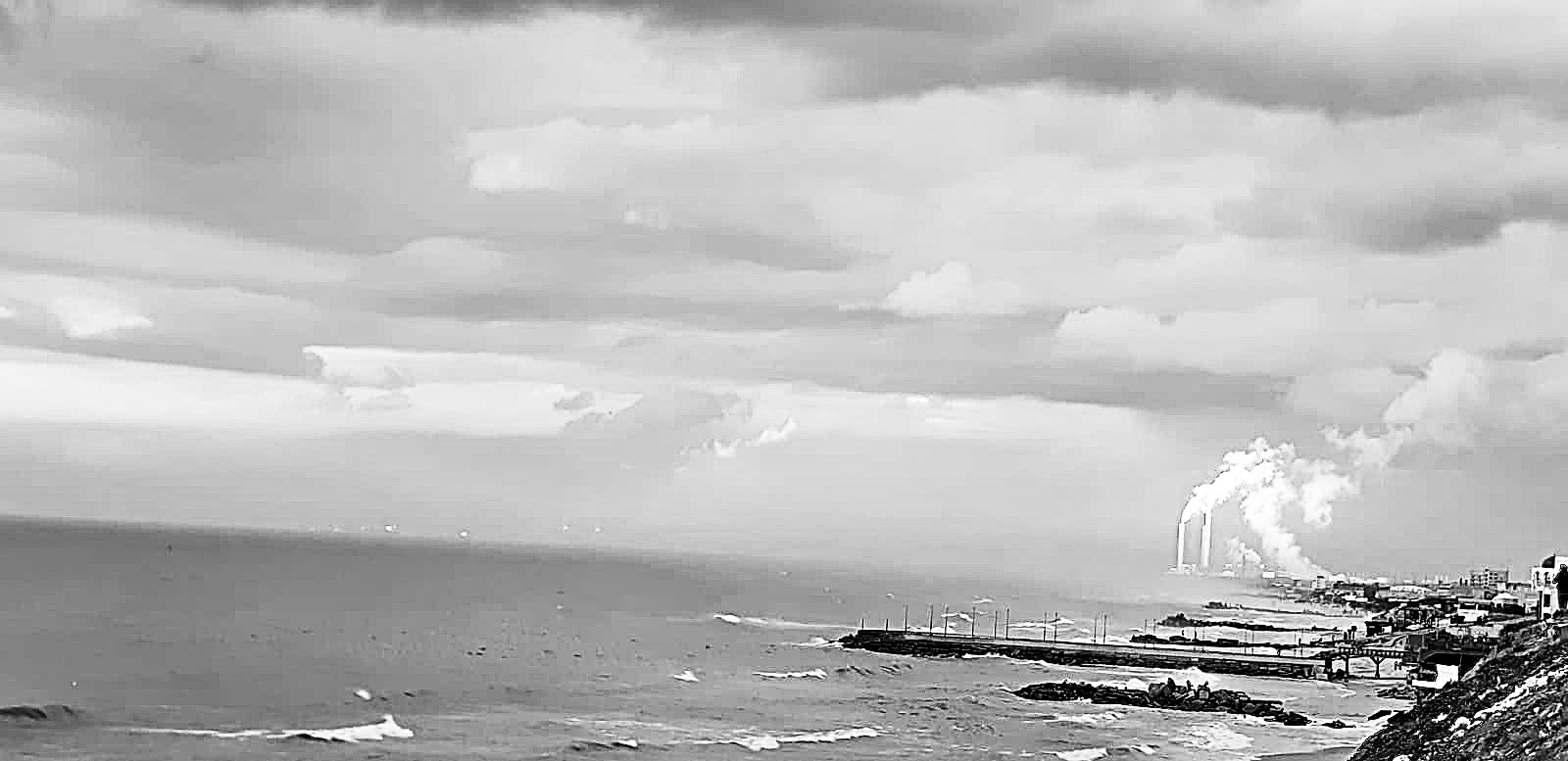Teachers and students share stories and experiences for Education without Walls – Hybrid event, 24 January 2024
The war on Gaza is ongoing, and its impact on access to education and people’s daily lives as well as the environment is overwhelming. In her account of the Gaza war as a war on women, Nesrin Malik writes about mothers giving birth with no medical help, babies without milk, and one toilet shared between 500 people. Going beyond the rising numbers of dead and displaced in Gaza, Malik continues, for women and girls the conflict has been disproportionately cruel.
The numbers are crushing. According to the article, there are about 50,000 pregnant women in Gaza and 40% of those pregnancies have been classed as high risk; 180 give birth daily within an obliterated healthcare infrastructure. If, then, there is a best-fitting time to listen to people’s stories and not just reduce them to mere numbers, then this is it.!
Storytelling events: focus on learning about life and culture
Following our pedagogical café with a focus on storytelling and Palestinian young people’s audiovisual stories about their cultural heritage, we organized a hybrid event in collaboration with GloseNet and the Equity team at the University of Jyväskylä (JyU).
Our guests and participants in the new (January 2024) event include OLIVE project members, researchers, teachers and students from Birzeit University, the University of Eastern Finland, Helsinki University, and Jyväskylä University.
The purpose of the event is to expand on glimpses of life and education in emergencies and in war situations that we started talking about already in the end of 2023. During the event, Professor Bihan Qaimari and her Special Education students from Birzeit University, share stories about the war situation and its impacts on studies and daily lives. The event was structured upon the aim to open up spaces for students to articulate their thoughts, worries, and anxieties and how these interfere with their learning process.
The idea was born during an earlier online gathering organized by Bihan and joined by her students and Teachers without Borders volunteers.
Sharing video stories with the world
As a follow-up, the students engage with storytelling, work together and create a video about the war and people with disabilities.
But the instances where video storytelling showcases as a way of learning drawing from real-life date back to June 2022, during my first visit in Birzeit University and the West Bank. It was my day one on campus when Bihan showed me around and we got to know through our stories about each other’s work and research. It was on the same day that a video clip was shot (shared here with her permission). In the video, Bihan gives an account of her study on the cultural meaning of being a teacher. Among others, she gives an example of the conflict that occupation inflicts on teachers’ identity.
Encounters with Bihan at Birzeit continue the following June 2023 when we make plans to meet again for joint research in the coming October.
That visit never happens. Nevertheless, the video stories open up a pathway to keep the narrative going.
This time, it is the students who are the storytellers, who create and share on social media a short video (follow the link, end of page) to articulate their fears and worries about how people with disabilities experience the war.
In this way, the students are showing us the way, to think deeper and better, to come up with solutions and support for people with disabilities in Gaza and the West Bank. As Malik points out in her article, this is a war on women.
A war on those who suffer, who cannot have the medicine they need, the treatment they need, in order to survive.
Importantly, these students are urging us to think:
Where are the human rights of children in Gaza?
Omar Alqrinawi, a business student and filmmaker, shared his story from Ruusupuisto, at the ground floor in the University of Jyväskylä. Omar now lives in Finland. Growing up in Gaza, he was a history buff and a soccer player. He was left-handed, ambitious, and sometimes not seeing eye-to-eye with his parents. But he was all that in Gaza. The stories he shared made in clear that nothing can be “normal” under occupation.
As a sign of protest and solidarity, a group of us who attended the event in person walked through the city center of Jyväskylä, holding candles and Palestinian symbols, the stories still echoing in our heads.
Thank you all for participating!
The organizers of the Education without Walls event were Heidi Layne (GloseNet, JyU), Johanna Ennser-Kananen (Equity team, JyU), Hille Janhonen-Abruquah (OLIVE project leader, UEF) & Marianna Vivitsou (OLIVE project planner, UoH). The poster of the event was designed by Abitha Chakrapani (Research assistant, JyU).
This multimodal story is narrated in the I-person. The parts describing the happenings in Ruusupuisto (JyU) and the photos with scenes from the candle walk were shared by Johanna Ennser-Kananen.
The featured image credits go to Montaser Al-Halabi, OLIVE project co-ordinator for Al-Azhar University, Gaza. The photo depicts aspects of Gaza before the war. Al-Azhar has been bombarded and completely destroyed.

The poster of the event and hand drawn Palestinian symbols used in the candle walk.

Instances from the candle walk
